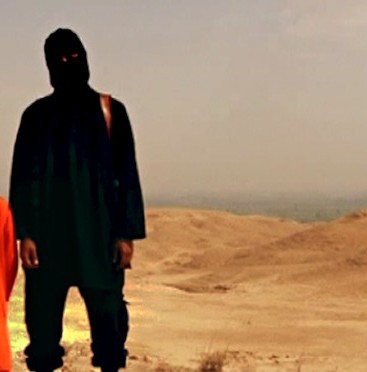In a Washington Post editorial, David Ignatius tries to make some psychological, sociological and political sense of ISIS’s brutal acts, an auto-da-fé for the Internet Age. The only conclusion he can draw–and a very reasonable one–is that humans at different points in history use religion (or nationalism or race or anything else handy) to dehumanize others not because of the tenets of a particular belief system but due to a flaw deep inside us. An excerpt:
What is the root of these unspeakable actions? Philosophers and anthropologists have studied the question as a way of assessing human nature in its most raw and uncivilized form. Elaine Scarry, a Harvard professor of literature, explored in her 1985 book, The Body in Pain, a process she described as “the conversion of real pain into the fiction of power.”
In medieval times, the venue for this show of power was usually a gathering place that was almost literally a theater. The sense of theatricality continues. “It is not accidental,” Scarry writes, “that in the torturers’ idiom, the room in which the brutality occurs was called ‘the production room’ in the Philippines, the ‘cinema room’ in South Vietnam, and the ‘blue-lit stage’ in Chile.”
French philosopher Michel Foucault saw the level of brutality in punishment as an index of the evolution of society. Gruesome public executions were common in Europe until the late 18th century. Slow, painful deaths were often part of the spectacle. The guillotine, which we now regard as cruel, was seen at the time of the French Revolution as humane because it was a “machine for the production of rapid and discreet deaths.”
Foucault described in his 1975 book, Discipline and Punish: The Birth of the Prison, the pre-modern penal ethic that now seems to have been embraced by the Islamic State: “Not only must people know [the punishment], they must see with their own eyes. Because they must be made to be afraid; but also because they must be the witnesses, the guarantors.”
European societies became modern and civilized when they replaced these bloody rituals with penal statutes that regarded prisons as “correctional” institutions, or “reformatories,” or “penitentiaries,” which Foucault warned had their own repressive character.
With their weird mix of modern and pre-modern, the Islamic State has revived the old practice of torture as a public exhibition — and given it the sheen of a video game.•

